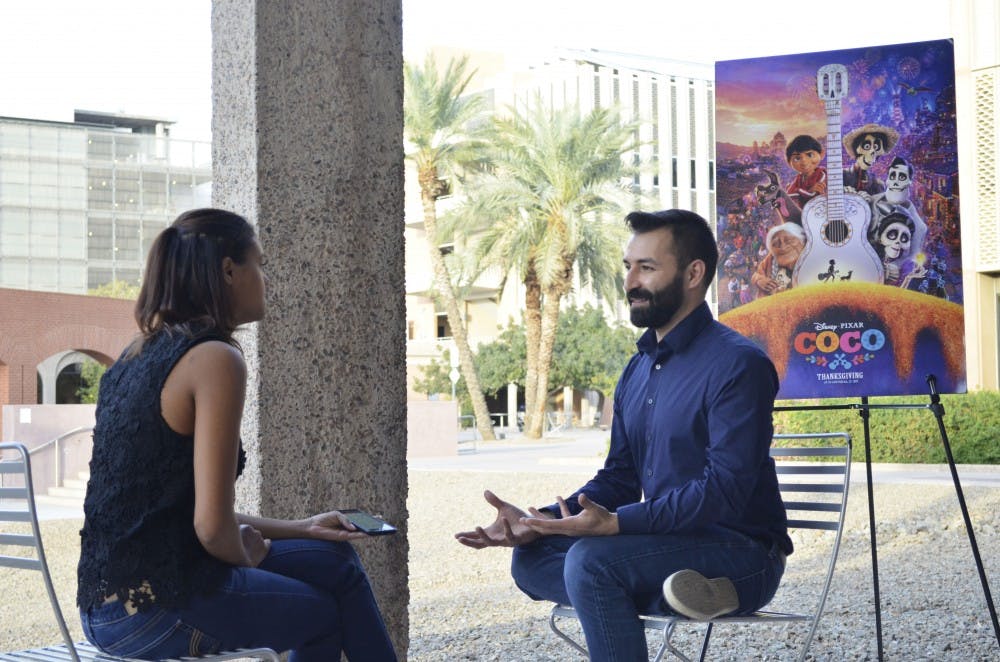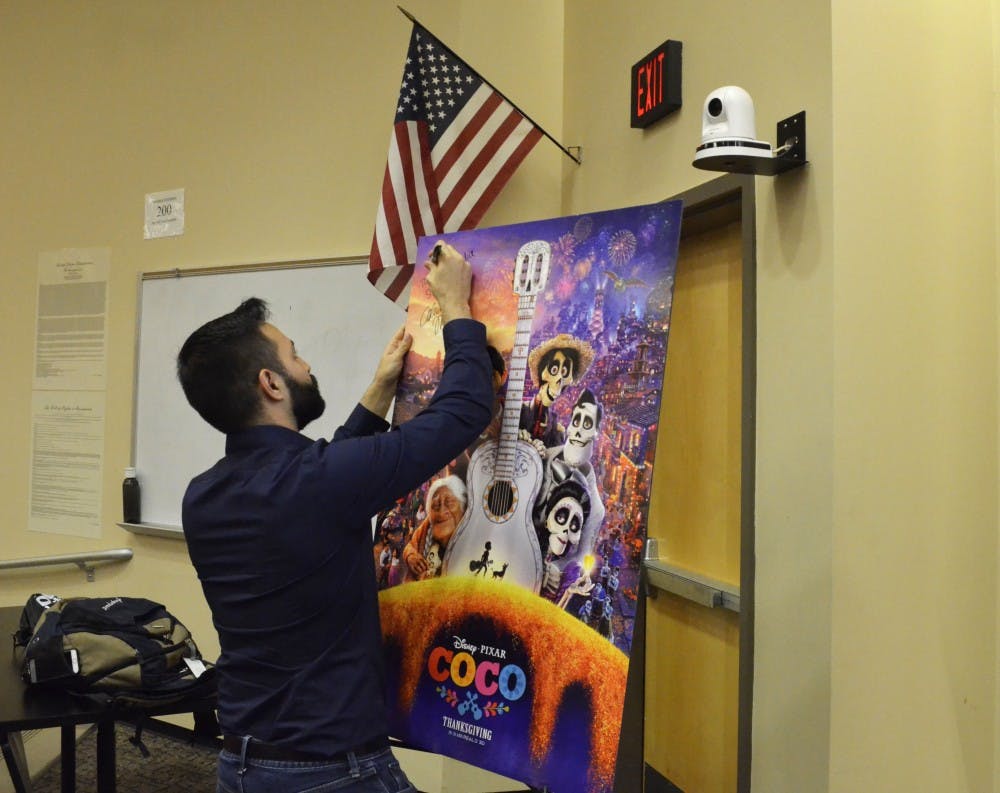Entering a room crowded with eager film students on Nov. 14, Adrian Molina, the co-director and screen writer of "Coco," spoke at ASU about his six-year voyage with Pixar Studios to put together the film, which will be released Nov. 22.
Molina started out as a story intern at Pixar in 2006, making his way up to work on the films "Ratatouille," "Toy Story 3" and "Monsters University."
For his newest film, Molina spoke about making a movie that he would be interested in seeing, while making it a film unlike anything he’s seen before.
“I’ve used this word before and I think it’s the most all-encompassing, but "Coco" is magical," Molina says. "There’s something special about it."
Molina previewed a few scenes from "Coco" to the audience which were greeted with laughter and overall excitement. Molina’s shy and kind demeanor only spurred the audience’s engagement with the film, causing viewers to desire more when he would stop in the middle of a scene.
“There’s a magic to it that is unlike, I think, any other movie we’ve made,” Molina says. “You can see it on screen, there’s an energy to the visuals and to the characters and their connection.”
Molina and his team at Pixar also made many trips to different regions of Mexico to study the different ways Dia de los Muertos (The Day of the Dead) is celebrated. He also went in depth about the additional research it took to perfect the film, including the process of writing the script, which took about two and a half years to complete.
“As the writer, I made it a point to really be diligent about listening to the notes that people were giving,” Molina says.
Molina commented that the attention to detail that goes into the film is what makes it feel real. He jokes about a time where a grandmother was brought into the studio to examine how her face “jiggles” when she speaks. This story brought light to Molina’s eyes and caused laughter to spread throughout the crowd.
Still, the entire process took six years of research and teamwork with people that Molina refers to as family. He explains that it is impossible to work so close with people for so long without becoming connected to them.
“You look back on that experience and you think of how special it was and the only other thing I can relate that to is the time you spend with your family,” Molina says.
Molina spoke about how the film emphasizes the passion to do art and fight against the expectation of family. This related to a majority of the audience members who are looking to add their own art into the world.
Freshman theatre major, Ryan Clark, was one of the students who had to opportunity to hear Molina speak.
“The point of most interest to me was that he elaborated on some of the research and I didn’t necessarily think about all of the research that goes into the production,” Clark says.
Clark also mentioned that it is amazing being able to see a glimpse of the Pixar production process and how they were able to share it with students. This was something that many students agreed upon.
“It was really cool hearing the process of how the movie was created,” Andrew Baker, freshman business major says.
The room was filled with a variety of students who asked Molina questions about his experiences. One student asked about the inspiration of the characters and the family history.
“My experience is one window into a culture, but it is a diverse mosaic into the experience,” Molina says.
When Molina first found out about the project idea, he jumped on the opportunity to work on a film with such a diverse background and culture. As the screen writer, he relates to every character and thinks it’s important to understand where each character is coming from.
“We all have a soft spot as artists for Miguel because we all were that kid who had this dream and didn’t know how to get it,” Molina said. “We’re just looking for that role model and that person who would support us and find a way to blossom into our true selves.”
Molina and his family at Pixar feel strongly about the decisions they’ve made and are ready to send it out into the world.
“It’s really a helpful thing to be able to get reaction to your creative work and go through the process and the practice of making it stronger and making it better,” Molina says.
Reach the reporter at Dominique.Ziegler@asu.edu or follow @thedominiquez on Twitter.
Like The State Press on Facebook and follow @statepress on Twitter.





